
As the year winds down, studios are gearing up to release their promising prestige films alongside last-ditch awards hopefuls, all while major blockbusters, now given a feasible window for release, occupy theaters. This month is no different; from some of the most-anticipated big-budget films of the year to incredibly promising debuts to must-see documentaries, there’s truly something for everyone. If the many films that didn’t quite make the top ten are any indication, it’s a packed month. One can see our picks below, then let us know what you’re looking forward to most in the comments.
Matinees to See: Big Hero 6 (11/7), The Theory of Everything (11/7), Beyond the Lights (11/14), Bad Turn Worse (11/14), Starry Eyes (11/14), The Homesman (11/14), Happy Valley (11/21), The Hunger Games: Mockingjay, Part 1 (10/21), The Sleepwalker (11/21), Escobar: Paradise Lost (11/26), Horrible Bosses 2 (11/26), Before I Disappear (11/28)
10. Rosewater (Jon Stewart; Nov. 14th)
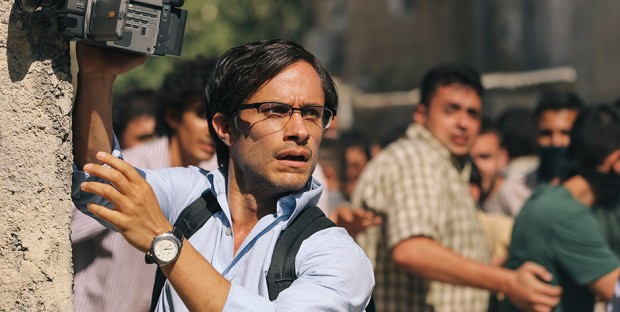
Synopsis: A journalist is detained in Iran for more than 100 days and brutally interrogated in prison.
Why You Should See It: In heading from a nightly news chair to behind the camera, Jon Stewart has pulled off an admirable feat with his first foray into directing. We said, in our review, “Contrary to early, perhaps reactionary, accounts, Rosewater is not entirely devoid of comedy. Of course those who think of Jon Stewart as a comedian first, journalist second will be surprised, but anyone more familiar with his work on The Daily Show will recognize that he does care deeply about the issues he raises. The comedy is how he captures the attention of the politically apathetic, and ultimately how he copes with the absurdities of what is happening in the world. And so it is with the humor in his directorial debut Rosewater – a coping mechanism for a man in a desperate situation.”
9. Actress (Robert Greene; Nov. 7th)

Synopsis: When Brandy decides to reclaim her life as an actor, the domestic world she’s carefully created crumbles around her.
Why You Should See It: Your list of 2014’s best documentaries will soon be disrupted by Actress. The picture uses its subject to address questions of fact and fiction in everyday life, following Brandy Burre, whose turn as Theresa D’Agostino on The Wire wound up being her biggest work by a significant margin, and whose struggle toward a renewed career captured the attention of her neighbor, Robert Greene –– he himself a documentary filmmaker. What resulted is equally raw and vibrant, juxtaposing stiflingly atmospheric depictions of the suburban homemaker’s life with the bliss a performative sort can wring from ordinary scenarios, all colored by an eye for everyday life that almost recalls Salesman. – Nick N.
8. The Imitation Game (Morten Tyldum; Nov. 28th)
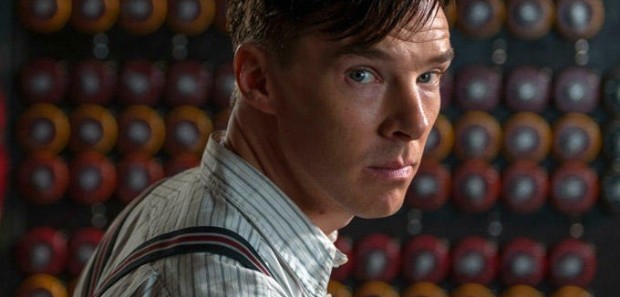
Synopsis: English mathematician and logician, Alan Turing, helps crack the Enigma code during World War II.
Why You Should See It: While we weren’t enthralled by the script, the performances from Benedict Cumberbatch and Keira Knightley should be on your radar come the end of November. Our review says that “Alan Turing’s life comes tailor-made to fit the prestigious period drama mold that’s long been a staple of the British film and TV industries. For the most part, The Imitation Game is content to stay within the tropes of its genre. While undoubtedly nakedly manipulative, there’s the sense that this has become the formula because it can function so well in the right hands. Even the most cynical will feel some joy at the sudden breakthrough discoveries, or even tear up as Turing is persecuted for his homosexuality. However, what limits the film to effective feel-good weepie, rather than the great work it could have been, is that it never challenges the audience’s conscience.”
7. Foxcatcher (Bennett Miller; Nov. 14th)
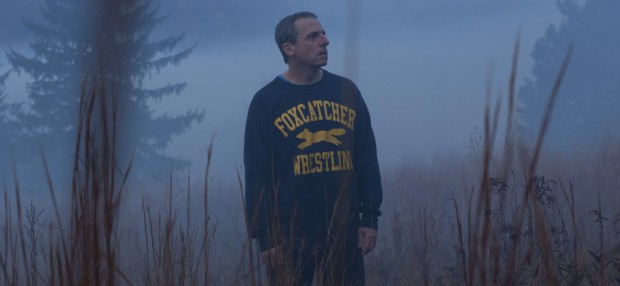
Synopsis: Based on the true story of Mark Schultz, an Olympic wrestler whose relationship with sponsor John du Pont and brother Dave Schultz would lead to unlikely circumstances.
Why You Should See It: While I found the drama in Bennett Miller‘s latest feature blunt and obvious to the point of being laughable, the performances from Channing Tatum and particularly Mark Ruffalo are something to watch. Our review from Cannes was more positive, saying, “This is as classic as classic Hollywood gets, but without the banality that has invaded contemporary Hollywood cinema. That Foxcatcher thus becomes a darkened view of the American dream, using one of the country’s most effectively exported aesthetics to critique the same, is why the film will quietly disturb audiences without telling them why.”
6. The Babadook (Jennifer Kent; Nov. 28th)
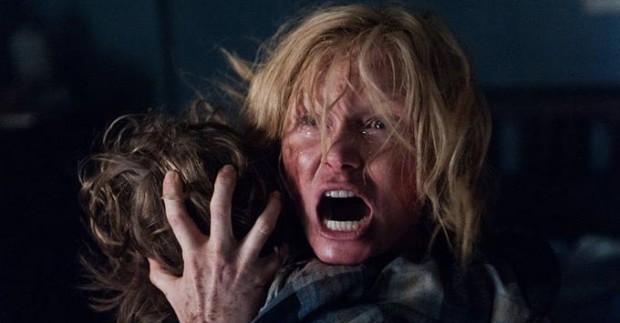
Synopsis: A single mother, plagued by the violent death of her husband, battles with her son’s fear of a monster lurking in the house, but soon discovers a sinister presence all around her.
Why You Should See It: After earning much acclaim since its Sundance debut, Aussie horror picture The Babadook will finally be arriving at the end of this month. We said in our review, “The Babadook may utilize familiar horror iconography like dank basements and insect infestations but it’s main ghoul is a creation that directly recalls german expressionist creations like that of The Cabinet of Dr. Caligari. This return to the more sinister and meager horrors of the past reinforces the film’s most potent theme: there are some monsters and some pains we will have to contend with for a very long time.”
5. Why Don’t You Play In Hell? (Sion Sono; Nov. 7th)

Synopsis: A renegade film crew becomes embroiled with a yakuza clan feud.
Why You Should See It: It was just last month that we reviewed Tokyo Tribe, the latest film from Japanese director Sion Sono, but, as is so often the case with foreign imports, it’s going to take some time for it to arrive in theaters here. Fans of the helmer’s particular brand of crazy will be pleased to learn that his previous feature, Why Don’t You Play in Hell?, will be arriving soon. This, which looks like one of the most wonderfully bonkers films of the year, should be a welcome shake-up from the prestige dramas invading multiplexes.
4. A Girl Walks Home Alone at Night (Ana Lily Amirpour; Nov. 21st)

Synopsis: In the Iranian ghost-town Bad City, a place that reeks of death and loneliness, the townspeople are unaware they are being stalked by a lonesome vampire.
Why You Should See It: Beguiling and austere, Ana Lily Amirpour‘s Iranian vampire feature, at the very least, marks the arrival of a fresh new voice with stunning cinematography and a sense of a genuine direction. Our review claims the director “is never concerned with building tension when this is going to happen exactly; rather, she’s content to establish a very distinctive and compelling place and tone. This will undoubtedly frustrate some audience members but will intrigue those who can get on its wavelength.”
3. Interstellar (Christopher Nolan; Nov. 7th)
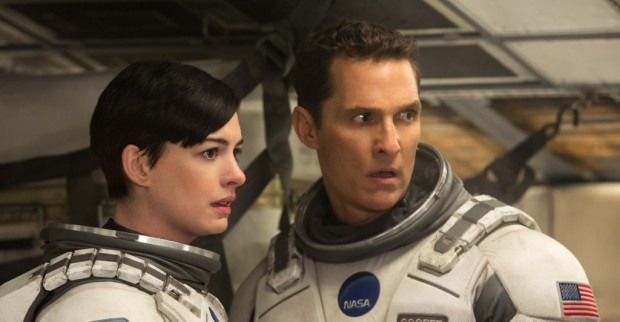
Synopsis: A group of explorers make use of a newly discovered wormhole to surpass the limitations on human space travel and conquer the vast distances involved in an interstellar voyage.
Why You Should See It: It’s not even yet in official release and Christopher Nolan‘s latest is already proving divisive around these parts. Some of our writers have enjoyed it and others fall on the other side, saying, “The film carefully guides you through its neatly packaged square of the universe, never leaving open a possibility of the beyond — not necessarily something darker, but something that would require his audiences to make a leap of faith.” With the space adventure arriving this week, it’ll certainly be an event to discuss, and this writer hopes it’s not just for the visuals — as nice as 70mm IMAX sounds.
2. National Gallery (Frederick Wiseman; Nov. 5th)
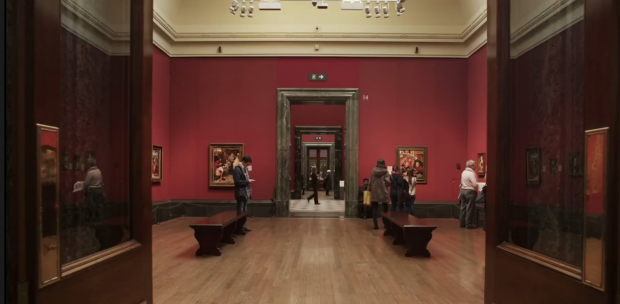
Synopsis: A documentary that goes inside one of the great museums of the world: The National Gallery in London.
Why You Should See It: Quickly following his masterful At Berkeley, one of our greatest directors, Frederick Wiseman, is returning with a new documentary. As our review from Cannes noted, “National Gallery sees the institution as a voice of communication — a way to contextualize the past and the present. Wiseman’s interludes between various sequences simply focus on painters staring at paintings, with him cutting between to often match eye lines or choosing a closer shot to emphasize one aspect. Through this, he meditates a literal communion between the life of an artwork and the life of an individual. Scene after scene, National Gallery asserts that these works are not still images, but moving and breathing objects, whether emphasizing tour guides who focus on the movement and emotions, the way paintings will communicate differently based on their placement in rooms, or simply focusing on the back rooms where models are translated onto paper.”
1. The Better Angels (A. J. Edwards; Nov. 7th)
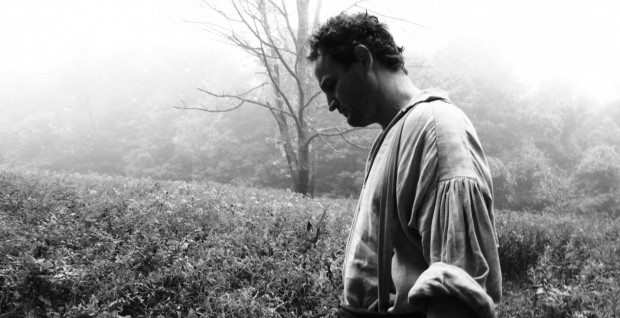
Synopsis: The story of Abraham Lincoln’s childhood in the harsh wilderness of Indiana and the hardships that shaped him, the tragedy that marked him for ever and the two women who guided him to immortality.
Why You Should See It: It’s been nearly an entire year since I saw A.J. Edwards‘ debut, a stunning look at the early life of Lincoln, produced (and greatly informed) by Terrence Malick, and it remains one of my favorites of 2014. I said in my review, “While Edwards’ method is coming from a place rooted in visual storytelling — or what one would typically define as an approach of ‘visual storytelling,’ broad as that may be — it’s an unmistakably informative film, with events (even those illustrated via voiceover) culled from a variety of historical documents. We see the Great Emancipator have a first encounter with slavery and receive the education that would come to form him — reading Robinson Crusoe, studying the states, and reading the Bible under the tutelage of Mr. Crawford (Wes Bentley). All of these formative moments — particularly the life lessons learned by his family — result in a remarkably complete portrait of his childhood.”
What are you watching this month?

